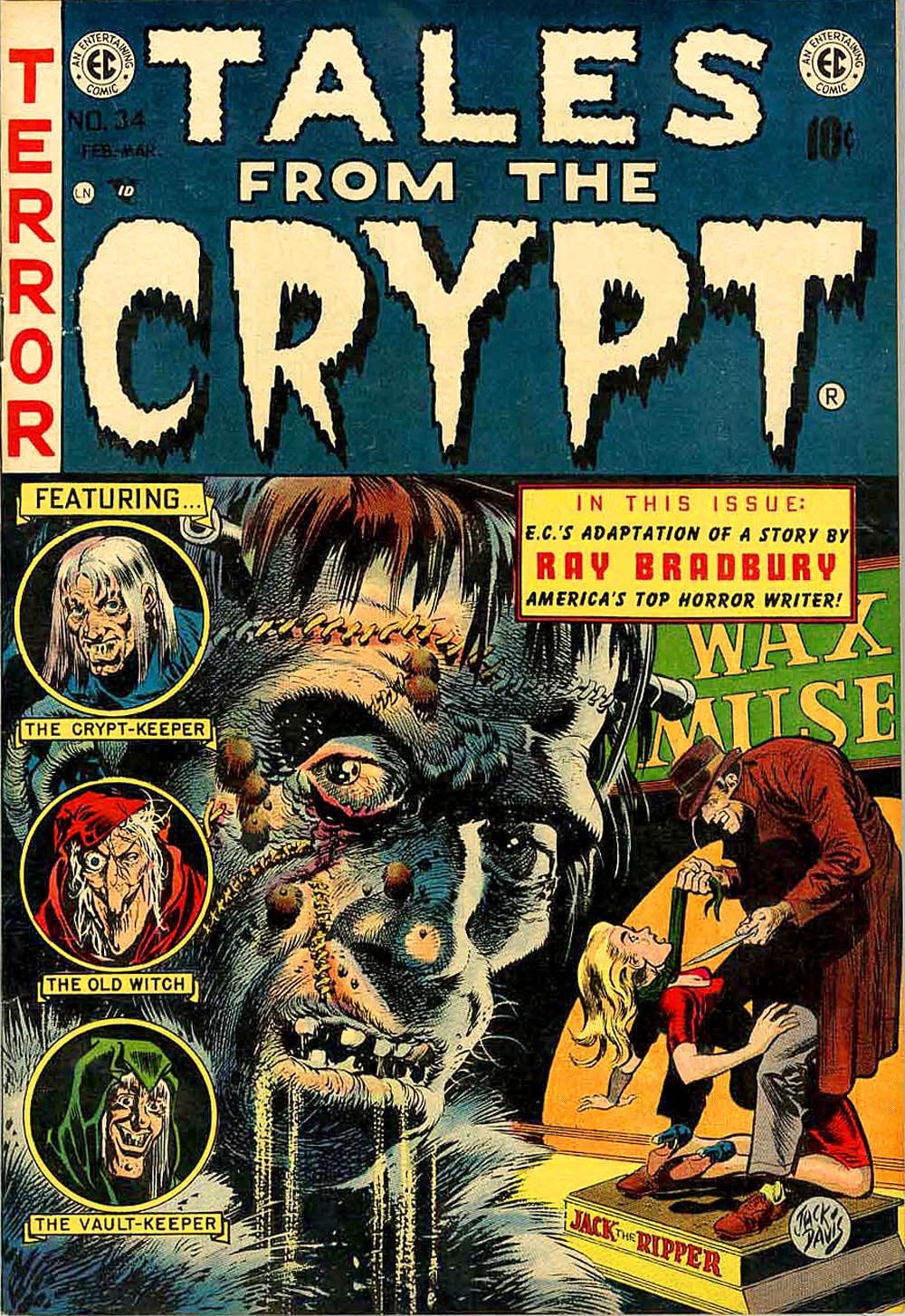“Mitigating the risk of extinction from AI should be a global priority along other societal scale risks such as pandemics and nuclear war
-- Statement from the Center for AI Safety
In 1954, a book called Seduction of the Innocent: The Influence of Comic Books on Today’s Youth by the psychiatrist Fredric Wertham was a national bestseller. It warned that comic books – especially of the “horror” genre – were the cause of what was said to be a countrywide crisis of “juvenile delinquency.”
A congressional inquiry into the comic book industry followed. And a Comics Code Authority was established by publishers, which placed what amounted to a seal of approval on the covers, based on standards demanded by the critics.
Why do I remember that? Because I was ten at the time and was interviewed for an NBC documentary on the subject. My friend Eddie Rosenfeld had a stash of gory comic books, but I was not especially taken with these. Superman and Captain Marvel were more of my taste, as were “classic comics” versions of The Three Musketeers and similar adventure stories.
At P.S. 166, we had duck-and-cover drills under our desks or in the hallways, in the event of a nuclear attack. Civil Defense signs were everywhere, and we wore dog tags with our names on them, the kind given to soldiers in war zones.
My European-born parents were so concerned about the effect of our new television on me that a contract was drawn up and “notarized,” limiting my viewing time on schooldays and even weekends.
And in 1954 we were still a year away from the announcement of Jonas Salk’s vaccine against polio, which was a major health threat, especially to children. Swimming pools were considered dangerous.
That was then. This is now.
The Artificial Intelligence (AI) warning on May 30 was signed by 350 technology experts and executives, including Sam Altman, the CEO of Open AI, the company that created of ChatGPT, which has, according to the Washington Post, pushed “new ‘generative’ AI to the masses…with image generators and chatbots that can have humanlike conversations, summarize text, and write computer code.”
A week earlier, the U.S. surgeon general issued an advisory “reserved for significant public health challenges that require the nation’s immediate awareness and action.” The report, titled Social Media and Youth Mental Health, notes that as many as to 95 percent of teenagers use social media and a third of them are connected “almost constantly.”
In the 1950s and ’60s the surgeon general’s dire warnings were about smoking and the resulting surge in lung cancer deaths. (The latest survey on adult smoking has it down to 12.5 percent from about half of all Americans at that time.)
So, pervasive screen use is now an official menace. We are persuasively told that global climate change is an impending catastrophe. Covid killed millions and Ebola might have. A terrorist, extremist, or political lunatic (Vladimir Putin, for instance) could cause mass annihilation with nuclear weapons or “dirty” bombs. Opioid addiction, school shootings, and other gun violence are out of control. Bigotry, racism, and inequality persist in what is regarded as a national Gilded Age of wealth and excess.
For reasons that I am not qualified to judge, there is a need in human nature to see so many ways in which civilization is in existential danger from, well, civilization. And that seems especially to be the case in the U.S.
Looking back over the last century or so, there have been profound adjustments in the way we live, ultimately absorbed. Electricity, cars, planes, telephones, movies, radio, television, and our work in progress, the internet. Lifespans in the developed world and much of the developing world have been extended by a generation or more. Why then does it all seem so overwhelming now?
The consequences of progress can be calculated as overall far more positive than not. And yet….
Here are several reasons why we seem so susceptible to present-day alarms:
The first is that everything is everywhere all the time. We are inundated with stimulation from media in the broadest sense, and that tends to be framed in ways to get our attention by being disturbing or titillating, the more clicks the better.
Another is the belief that convenience, speed, and access are essential to satisfaction. And when our activities are so dependent on technology and efficiency, there are inevitable frustrations and disappointments. You want better, faster service? You are likely to be paying for it.
Regulation is a fundamental conflict between those who favor it and those who see it as infringement on their rights. Rules, laws, prescriptions, and controls are all requirements of modern lives. For example, seat belts and other safety restraints in cars, at long last an accepted fact, have reduced automobile deaths by enormous amounts – but it took decades for them to be mandated and used.
The internet has proved to be especially complicated.. It became so indispensable so fast as a means of communication – like the telephone – and as a conduit of information and entertainment – like the mass media. It has been so wildly profitable for the people who control it that regulation has been a mess, to the extent that it has been done at all. The angst over the impact of AI is still to be tested. Like electricity, cars, planes, and telephones, we need to manage the reality of the impact of new things – and to do that, we’ll need to understand AI, which will take time and popular patience.
The competing interests of politics, profits, and the definition of progress are endless. The world situation is fraught, and each day of everyone’s life carries risks and rewards.
Comic books were never really the problem
*****************************************
Platform Books LLC our website has been updated (platformbooksllc.net) adding links and new material. There is also a way to buy and read our books through IndiePubs and here; https://indiepubs.com/search/?q=Platform%20Books%2C%20LLC.




